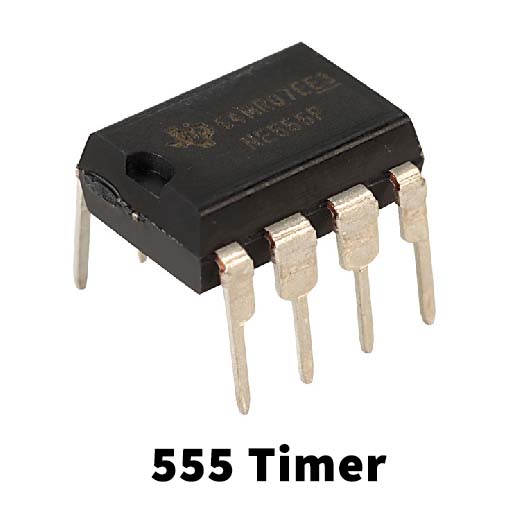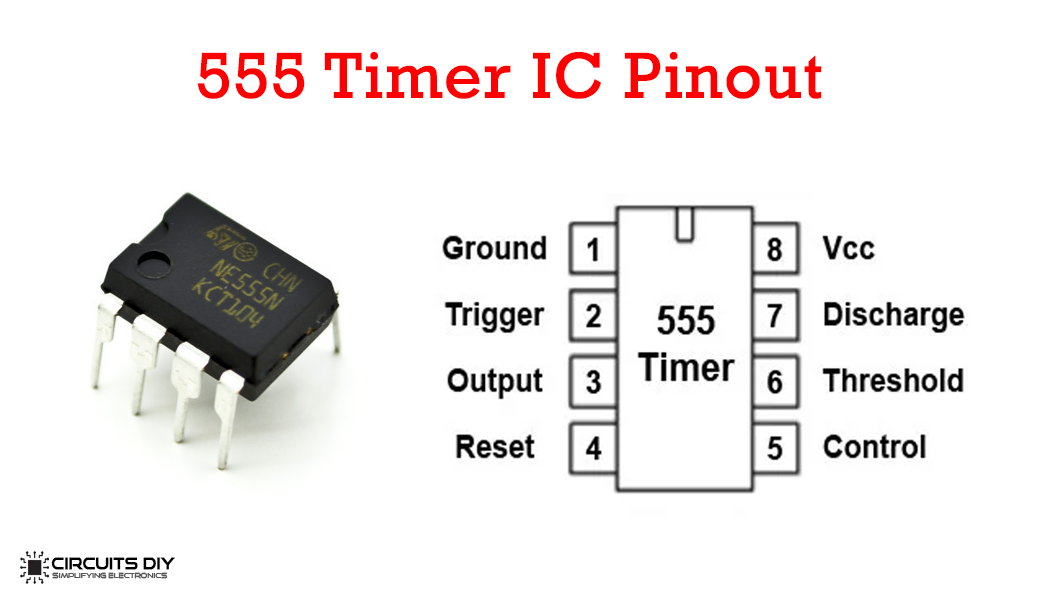In this tutorial, I will show you how to make a Bi-Color LED Driver Circuit using a 555 timer IC. A Bi-color LED is a special type of LED that consists of two diodes that are connected in inverse directions to each other inside a package. A Bi-color LED consists of three terminals- one common pin and two separate pins (one for each color). The LED used in this circuit produces 2 colors: Red and Green. We can connect the common pin to the ground if the LED is the common cathode or we can connect the common pin to +5V if the LED is a common anode.

Hardware Components
The following components are required to make Bi-Color LED Driver Circuit
| S. NO | Component | Value | Qty |
|---|---|---|---|
| 1. | Breadboard | – | 1 |
| 2. | Battery | 9v | 1 |
| 3. | Connecting Wires | – | 1 |
| 4. | IC | NE555 Timer | 1 |
| 5. | PNP Transistor | BC557 | 1 |
| 6. | Bi-color LED | – | 1 |
| 7. | Capacitor | 10uF | 1 |
| 8. | Resistors | 10k, 33k, 4.7k, 220 ohms | 1, 1, 1, 1 |
555 IC Pinout

For a detailed description of pinout, dimension features, and specifications download the datasheet of 555 Timer
Circuit Diagram

Connection
- Place the 555 Timer IC on a breadboard and connect Pin 4 & Pin 8 To VCC.
- Connect Pin 1 to GND.
- Use a jumper wire to connect Pin 6 & Pin 2 together.
- Use a 10K Ω resistor to connect Pin 3 to the base of the transistor.
- Connect a 4.7K Ω resistor between the Base of transistor & VCC.
- Add a 33K Ω resistor between Pin 3 and Pin 6.
- Connect the emitter of the transistor to VCC.
- Connect LED as shown in the circuit diagram.
Working Explanation
We are using 555 timer IC in the astable mode for this project. Output pin 3 is connected to the two terminals of the LED. One of the terminals of the LED is receiving output through a PNP transistor, which turns on when the output of the 555 timers is Low. The second LED terminal is directly connected to the output pin of the 555 timers and it turns on when the output of the 555 timers is High.
The functioning of the LED depends upon the positive signal given to one of the terminals. For example, if we are using a green and red color bi-polar LED then a positive signal applied at the red terminal and a negative signal applied at the green terminal ensures that the red LED is forward biased. This causes the red LED to glow while the green LED remains off. Similarly, if we give a positive signal to both the terminals of LED, a color depending upon the combination of both colors will flash.
Application
- Instead of using two different color LEDs for the indicator lamp, we can use a single Bi-color LED to indicate two different colors.













